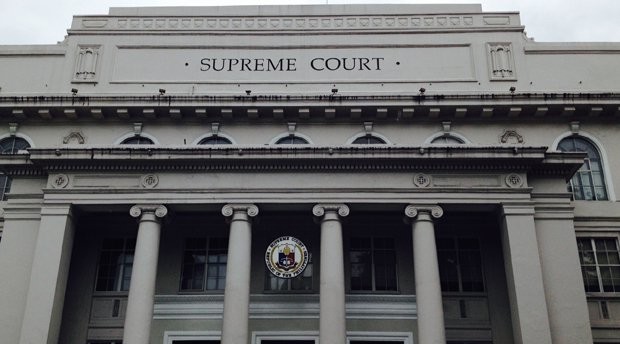De Lima takes case to SC
Senator Leila de Lima, through her lawyers, on Monday questioned before the Supreme Court the legality of her arrest and detention based on the order of Muntinlupa Regional Trial Court Branch 204 Judge Juanita T. Guerrero.
In her Petition for Special Civil Action for Certiorari and Prohibition, the embattled senator urged the high court to issue a status quo ante order (SQAO) to restore her situation prior to the issuance of the warrant of arrest.
She also asked the high court to stop the proceedings before the Muntinlupa RTC Branch 204.
Judge Guerrero, last Feb. 23, issued a warrant for the arrest of De Lima, her former driver and boyfriend Ronnie Dayan and former National Bureau of Investigation (NBI) Deputy Director and officer-in-charge of the Bureau of Corrections (BuCor) Rafael Ragos. All three are already under detention.
READ: De Lima, Dayan in separate detention facilities
They are facing a case for violation of Republic Act 9165 or the Comprehensive Dangerous Drugs Act of 2002 particularly Section 5 (sale) in relation to Section 3 (jj trading), Section 26 (b) and Section 28 or the criminal liability of government officials and employees.
Article continues after this advertisementDe Lima said Judge Guerrero committed grave abuse of discretion amounting to lack or excess of jurisdiction when she issued the order and the arrest warrant. Her acts likewise violated her constitutional, legal and procedural rights.
Article continues after this advertisementREAD: Muntinlupa court orders arrest of De Lima
She said the judge acted with undue haste and inordinate interest when she issued the warrant of arrest despite pending motion to quash.
“Haste, when unduly applied in the context of the criminal justice system, such that it constitutes a blatant failure to respect and uphold a person’s fundamental rights, and to observe the guarantees enshrined in the Constitution to protect the rights of the accused, it results in something far more destructive, more pestilent and graver than mere imperfection,” De Lima said in her 82-page petition.
Her lawyers said the court should have first resolved the question of jurisdiction mentioned in the motion to quash before issuing the arrest warrant “because such act is itself an exercise of jurisdiction, which we precisely object,” De Lima’s legal spokesman Atty. Alex Padilla said.
The petition also pointed out that Guerrero should have followed the constitutional requirements and procedural rules in issuing the warrant of arrest.
“Even a casual reading of the one-paragraph body of her arrest order will reveal that she did not rely on the required documents to make a personal determination of probable cause,” the petition stated. These documents, according to De Lima’s lawyers should include the joint panel resolution and the evidence submitted by the Department of Justice (DOJ).
The lawyers pointed out if the judge examined the documents submitted by the DOJ, she would have easily spotted the false certification issued by the DOJ panel of prosecutors. The certification noted that they personally examined the witnesses against De Lima during the preliminary investigation.
However, no actual witnesses appeared during the preliminary investigation. The panel, according to the petition, merely attacked the affidavits of the inmates who appeared and testified in Congress.
The petition added that there is also no substantive basis to support the findings of probable cause against De Lima to show that she indeed violated the Dangerous Drugs Act.
Among the missing elements, according to De Lima’s counsel, are the quantity of drugs traded, indication of a buyer, seller and money received, money trail or records of text messages, emails considering that the alleged trading of drugs was made through electronic devises.
“There is no allegation, much less proof from the records that would show that the criminal activities of the NBP (New Bilibid Prison) inmates were participated in by the accused,” the petition stated.
The petition also noted that it was quite ironic that the case against De Lima was based on the testimony of convicted inmates who admitted participating in the illegal drug trade.
“No court would have allowed their discharge as witnesses. The credibility of these witnesses, who are lifers and are in the custody of the DOJ are highly suspect, to say the least,” Padilla said. RAM/rga
